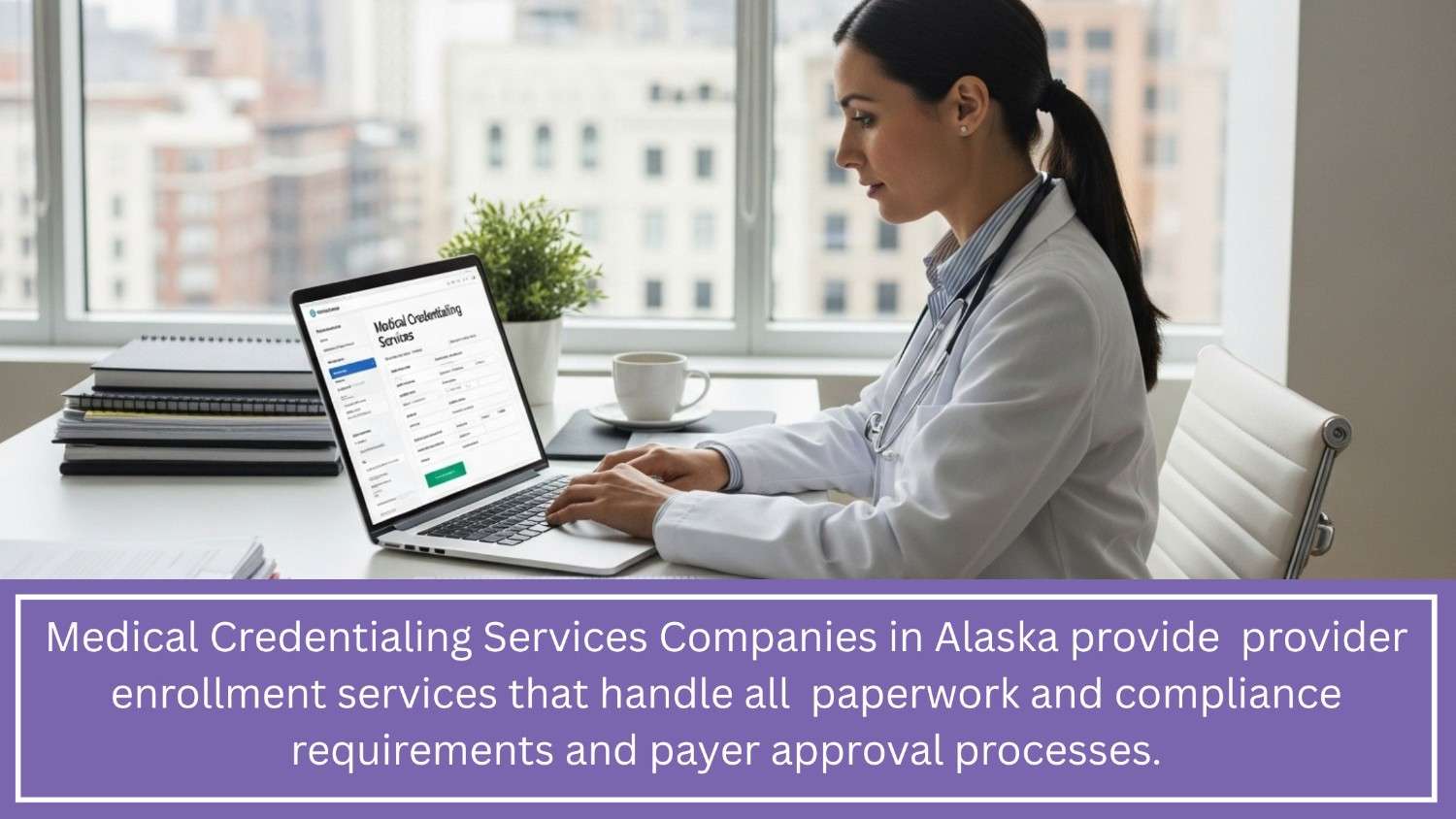Mastering DME Billing for Maximizing Healthcare Revenue and Enhanced Patient Care
In today’s dynamic healthcare ecosystem, where advancements in medical technology and patient care are rapidly reshaping the industry, the financial stability of healthcare practices has become more important than ever. Durable Medical Equipment (DME) is crucial for ensuring the financial health of medical practices, and its importance cannot be overstated.
DME billing involves the process of accurately documenting and billing for durable medical equipment, which encompasses a wide range of devices, from wheelchairs and prosthetics to home oxygen therapy equipment. The intricacies of DME billing may seem daunting, but its impact on a practice’s revenue stream cannot be overstressed. This blog explores the crucial role of DME billing in generating revenue for healthcare practices and highlights effective strategies to boost both financial outcomes and patient care.
Table of Contents
Short Note on DME Billing
Durable Medical Equipment (DME) billing refers to the process of submitting claims for reimbursement related to durable medical equipment, prosthetics, orthotics, and supplies prescribed to patients. This includes a broad spectrum of items, ranging from crutches and wheelchairs to more sophisticated equipment like home oxygen therapy devices. The reimbursement process entails intricate DME coding, compliance with regulatory guidelines, and careful documentation to make sure that medical professionals are fairly compensated for the services rendered.
Role of DME Billing in Generating Practice’s Revenue
Durable Medical Equipment (DME) billing plays a vital role in generating revenue for medical practices, particularly those involved in providing durable medical equipment to patients. Here are some key aspects highlighting the role of DME medical billing in revenue generation for medical practices:
- Navigating Regulatory Compliance
The landscape of healthcare billing is filled with regulations, including those specific to DME. Failure to comply with these rules puts practices at risk of legal repercussions as well as revenue streams. An in-depth knowledge of regulatory frameworks, including the Medicare DMEPOS Competitive Bidding Program, is required for medical professionals to effectively handle the complexities of DME billing.
- Optimizing Reimbursement Processes
The reimbursement is a challenge to navigate, and DME billing adds another layer of complexity. Effective billing procedures ensure that medical professionals receive timely and quick payments for the services they provide. This involves meticulous documentation of medical necessity, adherence to coding standards, and efficient claims submission. Practices must invest in training and technology to streamline these processes and avoid revenue leakage.
- Maximizing Revenue Opportunities
DME billing isn’t just about compliance and reimbursement; it’s also about identifying and capitalizing on revenue opportunities. Understanding the full scope of DME services that can be billed, including accessories and supplies, is crucial. Additionally, exploring avenues for private pay and third-party billing can significantly enhance revenue streams. Practices that strategically position themselves in this landscape can unlock new revenue potentials while providing comprehensive care to their patients.
- Mitigating Denials and Appeals
Denials in DME medical billing can be a common challenge, often leading to revenue loss. Practices must establish strong denial management processes in order to determine the root causes of rejections and implement corrective actions. This involves staying updated on DME coding changes, payer policies, and industry trends. Furthermore, having a streamlined appeals process is essential to challenge unfair denials and ensure that practices receive rightful reimbursements.
- Enhancing Patient Satisfaction
The patient experience is not limited to clinical interactions alone; it extends to the financial aspects of healthcare as well. Transparent and accurate billing processes contribute to patient satisfaction and trust. By proactively communicating with patients about their financial responsibilities, offering flexible payment options, and addressing billing inquiries promptly, practices can create a positive patient experience that, in turn, contributes to the overall success of the healthcare institution.
- Investing in Technology and Training
In an era dominated by technological advancements, practices must leverage cutting-edge billing software and systems to enhance efficiency and accuracy. Automation of billing processes reduces the likelihood of errors and ensures timely submissions. Moreover, continuous training of billing staff is paramount to staying abreast of industry changes, compliance requirements, and best practices. A well-trained and technologically equipped billing team is an invaluable asset for any healthcare institution.
- Staying Ahead of Industry Changes
The healthcare landscape is dynamic, with regulatory and reimbursement changes occurring frequently. Practices that proactively monitor and adapt to these changes position themselves for success. This includes staying informed about DME coding updates, payer policies, and any alterations to DME reimbursement rates. Regular audits of billing practices and compliance assessments help practices stay ahead of potential challenges and ensure financial stability.
Ways to Boost Revenue and Patient Outcome Through Accurate DME Billing
Achieving optimal revenue generation and positive patient outcomes through DME billing requires a multifaceted approach. One of the primary strategies is investing in robust billing software that integrates seamlessly with Electronic Health Records (EHR) systems. Automation not only minimizes the likelihood of human errors in coding as well as documentation, but it also speeds up the billing process, resulting in faster reimbursements.
Furthermore, continuous staff training is essential to stay up-to-date with evolving billing codes and compliance regulations. Regular audits of the billing process can identify potential issues, allowing for timely corrections and preventing revenue leakage. Leveraging technology for real-time claims tracking can provide insights into the status of submitted claims, enabling proactive measures to address any delays or denials.
Collaboration between billing and clinical teams is another significant component. Open communication channels keep the billing team informed of changes to patient care plans, allowing for accurate billing of services rendered. This collaborative approach not only maximizes revenue but also improves the overall efficiency of medical operations.
Patient education and engagement also play a pivotal role. Clear communication regarding insurance coverage, out-of-pocket expenses, and the importance of accurate information can reduce misunderstandings and billing disputes. Empowered and informed patients are more likely to stick to recommended treatments, leading to better health outcomes.
Streamlining DME Billing through Outsourcing
As the complexities of healthcare billing continue to evolve, many practices are opting to outsource their DME medical billing processes. Outsourcing DME billing services offers several advantages, including access to specialized expertise, reduced administrative burden on in-house staff, and the ability to stay up-to-date with changing regulations without overwhelming internal resources.
Outsourced billing services often employ dedicated teams with in-depth knowledge of coding specifications, compliance standards, and payer-specific requirements. This expertise minimizes billing errors, accelerates the reimbursement cycle, and ultimately contributes to enhanced revenue streams for healthcare practices.
Additionally, DME billing outsourcing allows healthcare professionals to focus on their core competencies – providing quality patient care. With the burden of billing lifted, practices can redirect resources towards improving clinical services, investing in technology, and expanding their patient base.
In conclusion, the significance of DME billing in healthcare revenue cannot be overstated. As healthcare practices strive to provide optimal patient care, they must also prioritize financial sustainability. Accurate DME billing not only ensures fair reimbursement for services rendered but also contributes to improved patient outcomes. The evolving landscape of healthcare demands a proactive approach to optimizing DME billing reimbursement, encompassing precise DME coding, transparent communication with patients, and the integration of technology solutions. Additionally, the option to outsource DME billing is gaining traction, offering practices a strategic and efficient means to navigate the complexities of reimbursement while maintaining focus on core clinical activities.
Understanding the intricate connection between DME billing, revenue generation, and patient outcomes is essential for healthcare professionals and practices aiming to thrive in an ever-changing healthcare environment. By embracing best practices in DME billing, healthcare providers can strike a balance between financial health and exceptional patient care, ultimately securing a sustainable and prosperous future.
Practolytics, as a leading Revenue Cycle Management (RCM) service provider, offers comprehensive DME Billing Services. With a commitment to precision and efficiency, Practolytics empowers healthcare practices to navigate the intricacies of billing, ensuring accurate reimbursement and allowing providers to concentrate on delivering high-quality patient care.
ALSO READ – Revenue Cycle Management: Where Financial Success Meets Healthcare in 2024
Talk to Medical Billing Expert Today — Get a Free Demo Now!






